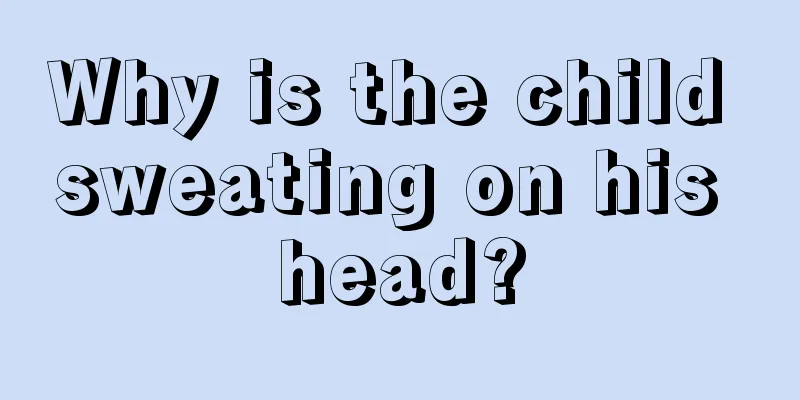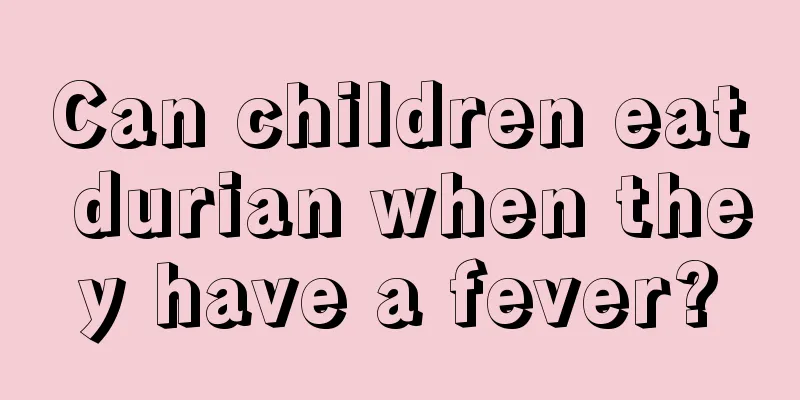Why does my baby vomit after eating?

|
The baby's body's ability to accept food is very weak. If you don't pay attention to the baby's diet and eating habits, it is easy to cause bad results to the baby's digestive system. For example, if the food the baby eats is not adapted to the baby's internal environment, the baby's digestive system cannot digest the food well and the baby will feel very uncomfortable. So, why does the baby vomit after eating? 1. Improper feeding or eating: Overfeeding during the neonatal period, improper milk formula, swallowing large amounts of air while feeding; infants and young children eating large amounts at one time or food that is difficult to digest. 2. Abnormal digestive function: Systemic infectious diseases. If you suffer from upper respiratory tract infection, bronchitis, pneumonia, sepsis and other diseases, you will often experience vomiting along with high fever, nausea, loss of appetite, etc. 3. Digestive tract infectious diseases: gastritis, enteritis, dysentery, appendicitis and other diseases can cause reflex vomiting due to local irritation, which is often accompanied by other digestive system symptoms such as nausea, abdominal pain and diarrhea. 4. Neurological diseases: Central nervous system diseases such as encephalitis, meningitis, intracranial hemorrhage or tumors, and craniocerebral trauma can also cause vomiting, which is characterized by no nausea before vomiting and projectile vomiting, but is often accompanied by other symptoms of the nervous system, such as headache, mental depression, drowsiness, and even convulsions and coma. 5. Mental factors: Some children may vomit due to excessive mental stress or anxiety caused by certain reasons. Recurrent vomiting is sometimes related to mental factors. 6. Poisoning: including various poisonings, such as food poisoning, poisonous animals, plants, drugs, pesticides, etc., almost all of which have vomiting symptoms, but different poisonings have their own clinical characteristics for identification. 7. Others: Vestibular dysfunction of the inner ear or Meniere's disease (hydromatous accumulation in the inner ear membrane and labyrinth) causes severe vomiting, but is often accompanied by vertigo and visual rotation; congenital gastrointestinal malformations in children, such as gastric torsion, hypertrophic pyloric obstruction, etc. In addition, vomiting is also severe in children with intestinal ascariasis who have intestinal obstruction or biliary ascariasis. After parents understand the above-mentioned causes of vomiting, they can analyze them in combination with their children's performance. With an idea in mind, they will not panic when vomiting occurs. It is best for the baby's diet to be simple and light, because the baby's organs are still very simple, and the baby cannot digest too complicated food well, which will cause certain harm to the child. Therefore, for the baby's health, parents have to work harder and supervise their baby's healthy diet. |
<<: Why are babies born with hemangiomas and what should parents do?
>>: What to do if your baby gets diarrhea after eating dragon fruit
Recommend
At what age can a baby learn to walk? New moms must know!
Some young people who have just become parents ar...
Side effects of precocious puberty treatment
With the improvement of people's living stand...
What is the reason for the red spots on the baby's face?
We all know that babies' skin is relatively d...
How can children protect their teeth?
We all know that children have no resistance to s...
What are the dangers of anal bleeding in children?
Nowadays, most children are only children and are...
Early education for three-month-old babies
Nowadays, parents pay more and more attention to ...
Why does the child keep hiccuping?
Hiccups in children can easily affect their conce...
How tall is a three year old child?
For many mothers, they can seem to breathe a sigh...
What is the best way to wean your baby?
As the baby gets older, you have to consider the ...
What are the symptoms of sinusitis in 3-year-old babies?
Sinusitis is a very common chronic disease nowada...
24-month-old baby development indicators and standards
A 24-month-old baby is already in the age group o...
What to do if baby has prickly heat on forehead
Prickly heat, also known as "heat rash"...
What fruits are good for children with anemia?
Nowadays, everyone can feel that money is getting...
Solutions to zinc deficiency in four-month-old babies
Zinc deficiency in babies will affect their norma...
What to do if your baby has tongue tie ulcer
Baby tongue frenulum ulcer is a very common disea...









